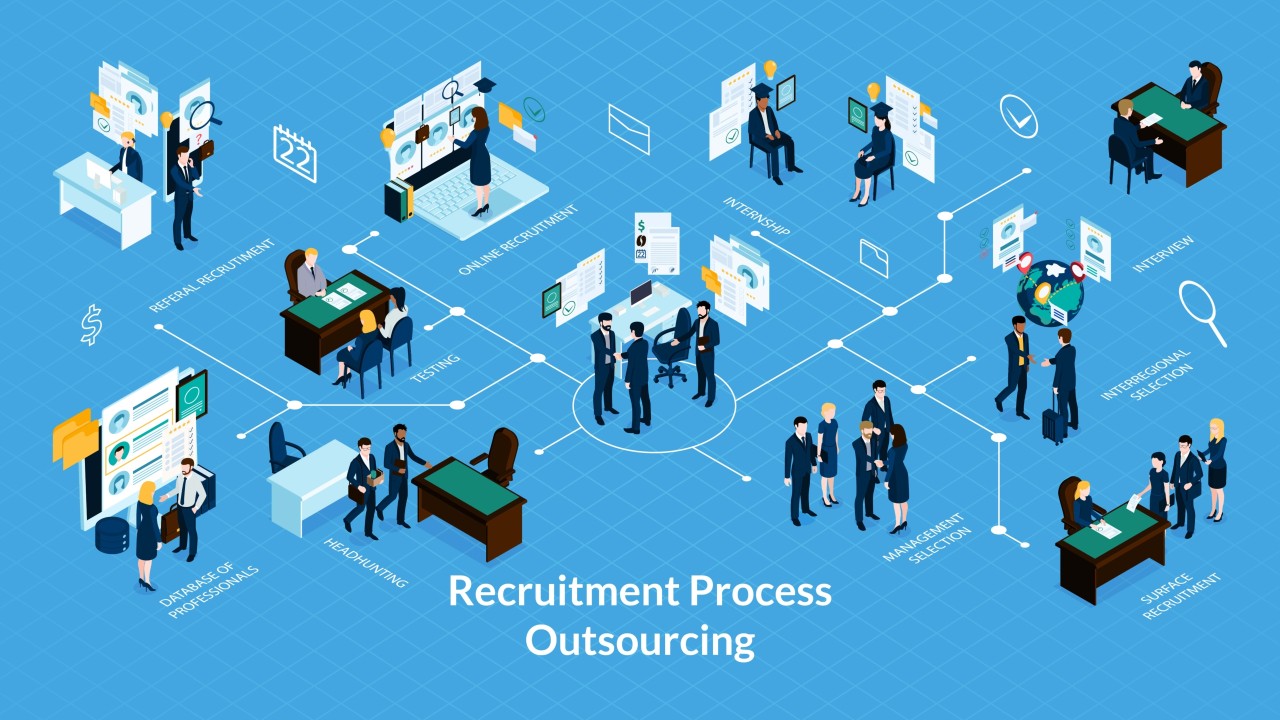Businesses Moment face a wide range of challenges in an ever- changing business terrain, especially when it comes to hiring the right gift. Recruitment Process Outsourcing( RPO) offers a strategic result that combines effectiveness, scalability, and expertise, particularly in the environment of RPO India. This comprehensive companion delves into the complications of RPO, from its description to its impact on business issues, and serves as a roadmap for companies in India to navigate the complex hiring landscape.
Understanding Recruitment Process Outsourcing (RPO)
At its core, RPO is a strategic partnership between an organisation and an external provider, similar to an RPO company, which takes on specific aspects of the recruitment process. This can include sourcing and webbing campaigners, managing interviews, and indeed onboarding new hires, all while clinging to the organisation’s norms and culture. The thing of RPO is to improve hiring issues through specialised moxie, advanced technology, and a streamlined process.
How Does RPO Work?
RPO providers generally offer a range of services that can be customised to meet your association’s requirements. They use advanced technology, data analytics, and assiduity stylish practices to attract and retain the stylish gift. The process begins with understanding your company’s hiring requirements and culture, followed by creating an acclimatised recruitment strategy. The RPO provider also takes over the prosecution of this strategy, ensuring a flawless hiring experience.
Why Embrace RPO?
There are several compelling reasons for organisations to outsource their recruitment tasks to an RPO company. One of the primary benefits is the improvement of crucial hiring criteria similar to time- to- filler and quality of hire. By using the moxie of RPO providers, organisations can achieve a further harmonious and cost-effective hiring process. The 2024 RPO Value and perceptivity Study highlights significant advancements in colorful critical hiring parameters for enterprises utilising RPO, demonstrating its tangible benefits.
Exploring Types of RPO Engagements
RPO engagements come in various forms, each catering to specific organisational needs:
- Enterprise Full Talent Lifecycle RPO: This is a comprehensive solution that covers the entire recruitment process across all skill sets and locations, often replacing the organization’s internal recruitment resources entirely. It offers a holistic approach to talent acquisition, ensuring consistency and alignment with business goals.
- Hybrid-Select Process/Staff Augmentation RPO: This model supplements the internal recruitment team for specific roles, departments, or processes. It integrates seamlessly with the existing recruitment framework, providing additional support where needed without overhauling the entire system.
- On-Demand/Project RPO: Ideal for organizations with defined hiring needs within a specific timeframe, this model offers flexibility and scalability. It allows companies to ramp up their recruitment efforts during peak periods or for special projects without long-term commitments.
- Contingent RPO Model: This approach focuses on temporary and contract hires, leveraging the dynamics of the gig economy. It enables organizations to quickly fill short-term roles with qualified candidates, maintaining workforce agility.
Decoding RPO Costs
The cost structure for RPO in India is not one-size-fits-all. Common pricing models include pay-for-performance schemes, hybrid blended models, and management fee structures. These pricing strategies allow organizations to align recruitment costs with hiring outcomes effectively. By balancing scalability and risk-sharing, companies can manage their recruitment budgets more efficiently while ensuring high-quality hires.
Demonstrating the ROI of RPO
The return on investment (ROI) from RPO engagements extends beyond recruitment metrics. Improved hiring consistency and quality lead to enhanced organizational performance and increased revenue. The 2023 RPO Trends Report emphasizes the transformative power of strategic talent acquisition, showcasing how RPO partnerships can drive business growth. Companies that invest in RPO can achieve significant gains in productivity and overall business performance.
Navigating the Selection Process
Selecting the right RPO provider hinges on several factors:
- Recruiting Services: Assess the provider’s capabilities in recruitment, including innovative solutions such as recruitment marketing and diversity recruitment. The provider should offer a comprehensive suite of services that align with the organization’s hiring needs.
- Talent Technology: Evaluate the provider’s technology stack and market intelligence tools. Advanced technology can optimise hiring strategies and improve efficiency, making it a critical component of a successful RPO partnership.
- Global Hiring Expertise: For organisations with a global presence, it is essential to partner with RPO firms that have expertise in global talent acquisition. This ensures compliance with local regulations and access to diverse talent pools across different regions.
- Overall Business Alignment: RPO should evolve into a strategic partnership that aligns hiring goals with broader business objectives. The right RPO provider will work closely with the organization to drive growth and achieve long-term success.
The Role of Technology in RPO
Applicant Tracking Systems (ATS)
Applicant Tracking Systems( ATS) are essential tools in Recruitment Process Outsourcing(RPO). They help manage the entire recruitment process, from posting job openings to shadowing operations and communicating with campaigners. ATS improves effectiveness and ensures a smooth hiring process.
Artificial Intelligence and Machine Learning
AI and machine learning are revolutionising RPO. These technologies can dissect vast quantities of data to identify the stylish campaigners, prognosticate hiring requirements, and automate repetitive tasks. This leads to more accurate and effective recruitment processes.
Conclusion
In today’s competitive talent landscape, organisations must prioritise Recruitment Process Outsourcing( RPO) to stay ahead. By using the expertise, scalability, and invention of RPO providers, companies can enhance their recruitment issues, ameliorate internal effectiveness, and achieve sustained growth. Understanding the nuances of engagement types, pricing structures, and ROI indicators is pivotal for establishing a successful RPO collaboration. With the right approach, RPO can be an important tool for driving organisational success and navigating the complications of ultramodern hiring.








